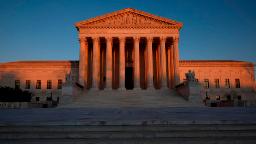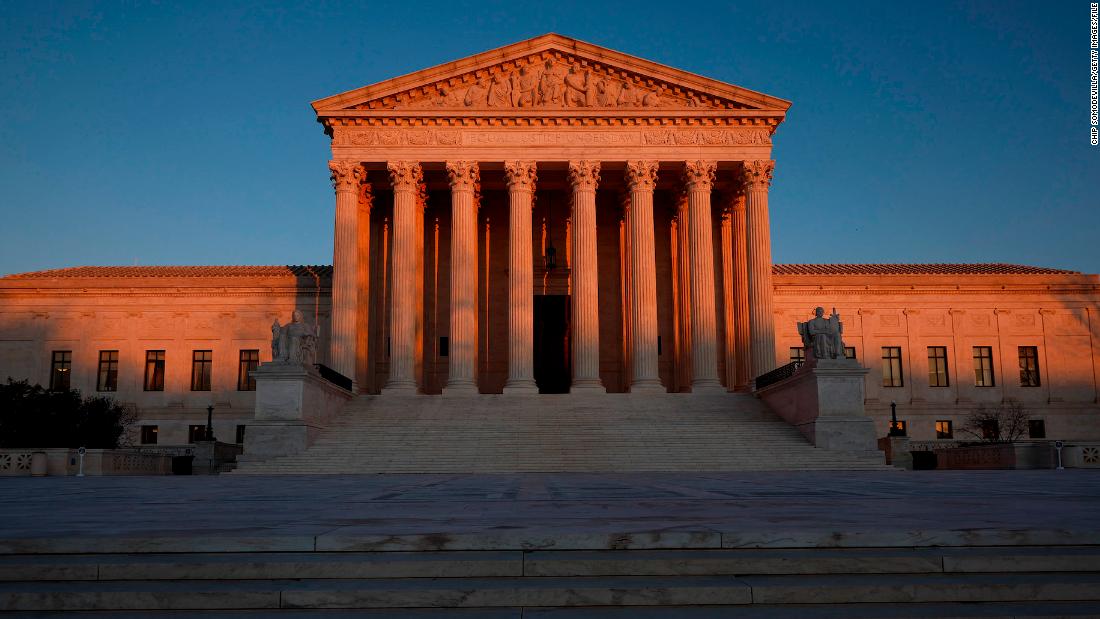
There is no ignoring that the public has found it increasingly difficult to think of life-appointed federal judges as neutral decision-makers.
Yet the Supreme Court’s conservative majority has largely responded with distance and denial. In the weeks since their contentious late June decisions, the justices have demonstrated a lack of awareness about the public concern and appeared even more disconnected, gravitating to like-minded audiences and speaking at closed venues.
The pattern emerges as another annual session will begin in less than a month. The justices will take up challenges to voting rights and racial affirmative action and a clash between religious interests and LGBTQ protection.
“So obviously people can say what they want, and they are certainly free to criticize the Supreme Court and if they want to say that its legitimacy is in question, they are free to do so,” he said, “but I don’t understand the connection between opinions that people disagree with and the legitimacy of the court.”
But people have not been questioning the court’s legitimacy simply because they disagree with opinions. They see that the justices have broken from their usual adherence to precedent, offered dubious rationales and voted in what appears to be partisan lockstep. Polls show increased political polarization in responses to the court.
The justices who made up the narrow majority in Dobbs v. Jackson Women’s Health Organization have withdrawn from the wider public eye this summer.
Justice Brett Kavanaugh met only with select judges at judicial conferences in Rapid City, South Dakota, and Louisville, Kentucky.
Barrett sat for friendly questions at an invitation-only business conference in Big Sky, Montana. She has gravitated toward GOP-oriented settings; in her early months on the bench, she appeared at a celebration of the University of Louisville’s Mitch McConnell Center and at the Ronald Reagan Library in Simi Valley, California.
The justices who dissented from Roe have appeared at some public events this summer. Perhaps the most relevant remarks, at a 9th US Circuit judicial conference in Big Sky, Montana, broadcast on C-SPAN, were those of liberal Justice Elena Kagan.
She implicitly criticized the Dobbs decision as she observed that the court loses public trust when it discards precedent, and she insisted that the court cannot presume that people will hold it in high regard. Rather, she said a court must earn and retain its legitimacy “by acting like a court, by doing the kinds of things that do not seem to people as political or partisan.”
And she warned, “If over time the court loses all connection with the public and with public sentiment, that is a dangerous thing for democracy.”
“And when they instead stray into places where it looks like they are an extension of the political process or where they are imposing their own personal preferences,” she added.
Vanishing act
The justices in the Dobbs majority have been evasive about their speaking commitments.
Justice Neil Gorsuch appeared at the same judicial conference in Colorado Springs as Roberts but with no advance notice. He told the audience that he was expecting a report soon about the court’s internal investigation into an early leak of the Dobbs opinion, which led to Politico’s publication of a 98-page draft on May 2.
One event that was publicized was an education summit appearance hosted by the Reagan Institute featured Barrett and liberal Justice Sonia Sotomayor. Both had kind remarks, in the session taped in mid-May and released in late-July.
“Our disagreement on political issues and important constitutional issues doesn’t diminish the value of who Justice Amy Barrett is in my mind or to me,” Sotomayor added.
Chief tries to build confidence
Roberts, a 2005 appointee of Republican President George W. Bush, has in the past tried to defend the court’s legitimacy and the judiciary’s integrity. Most memorably, in November 2018, he declared, in response to Trump’s denigration of a judge as an “Obama judge”: “We do not have Obama judges or Trump judges, Bush judges or Clinton judges.”
In Colorado, his response failed to acknowledge the reality of public concerns about a politically motivated judiciary.
Multiple polls have shown public approval of the Republican-dominated court at record lows. A Pew Research Center report issued on September 1 additionally found that the majority of Democrats (51%) said the justices are doing a poor job of keeping their political views out of their rulings.
Republicans expressed some skepticism of the justices’ biases but at a lower rate. Pew reported that 37% of Republicans said the justices were doing “an only fair or poor job” of keeping their politics from how they decide major cases.
Although Roberts dissented in Dobbs, he was solidly in the six-justice conservative majority for other high profile decisions last session: to enhance gun rights, reduce regulation of the environment, and allow more mingling of church and state.
At Friday’s session in Colorado Springs, Roberts suggested he believed that people were erroneously criticizing the court’s crucial role as arbiter of the Constitution.
“If the court doesn’t retain its legitimate function of interpreting the Constitution,” he said. “I’m not sure who would take up that mantle. You don’t want the political branches telling you what the law is, and you don’t want public opinion to be the guide of what the appropriate decision is.”
But that response arguably misses the point that emerges in public responses: that the court appears to be abandoning its constitutional role, in favor of one indistinguishable from the political branches.
When Roberts was asked what he might be looking forward to in the new session, he referred first to what he hoped not to see: “I’m looking forward to having a court without barricades. … The more normal, the better.”

